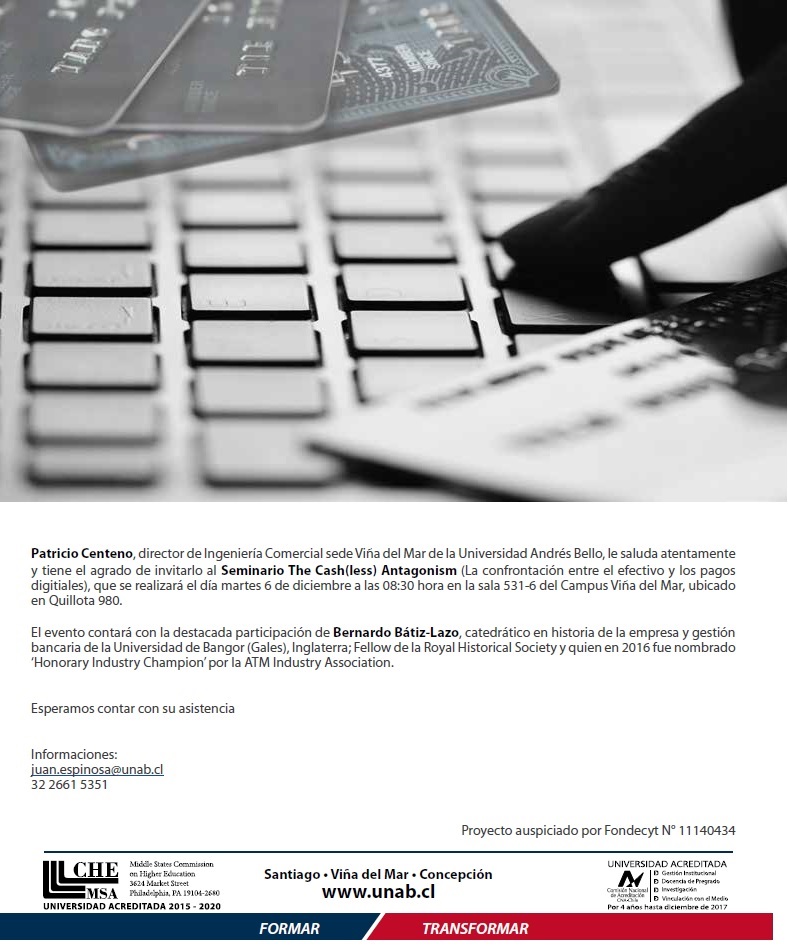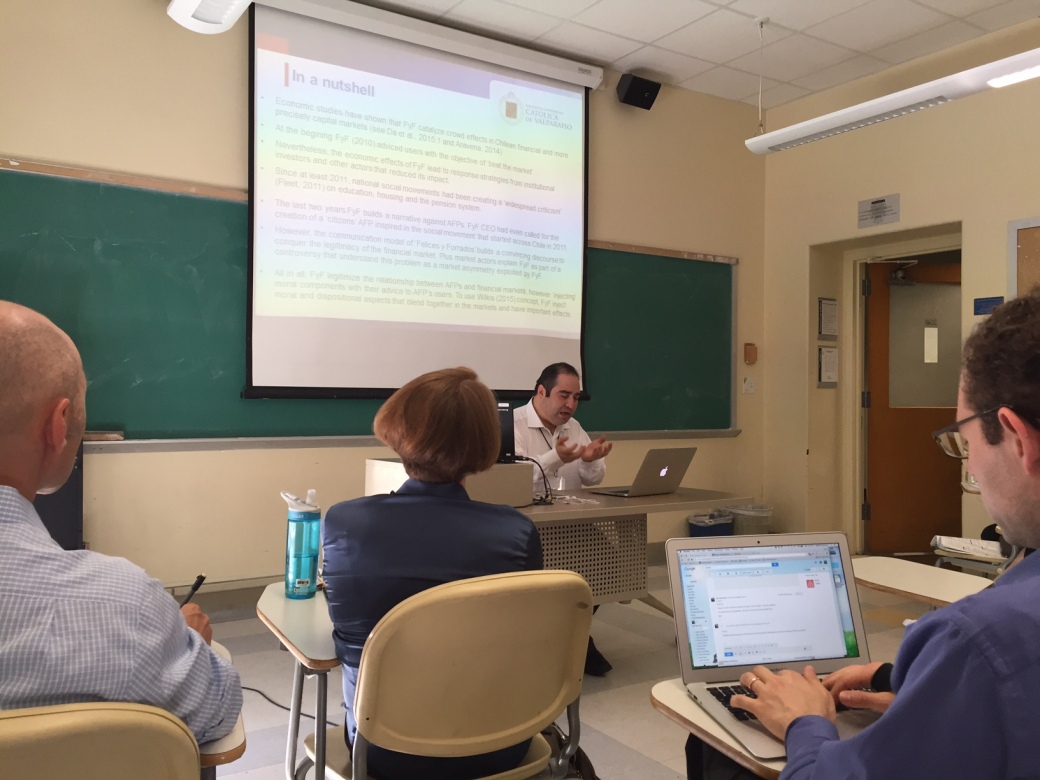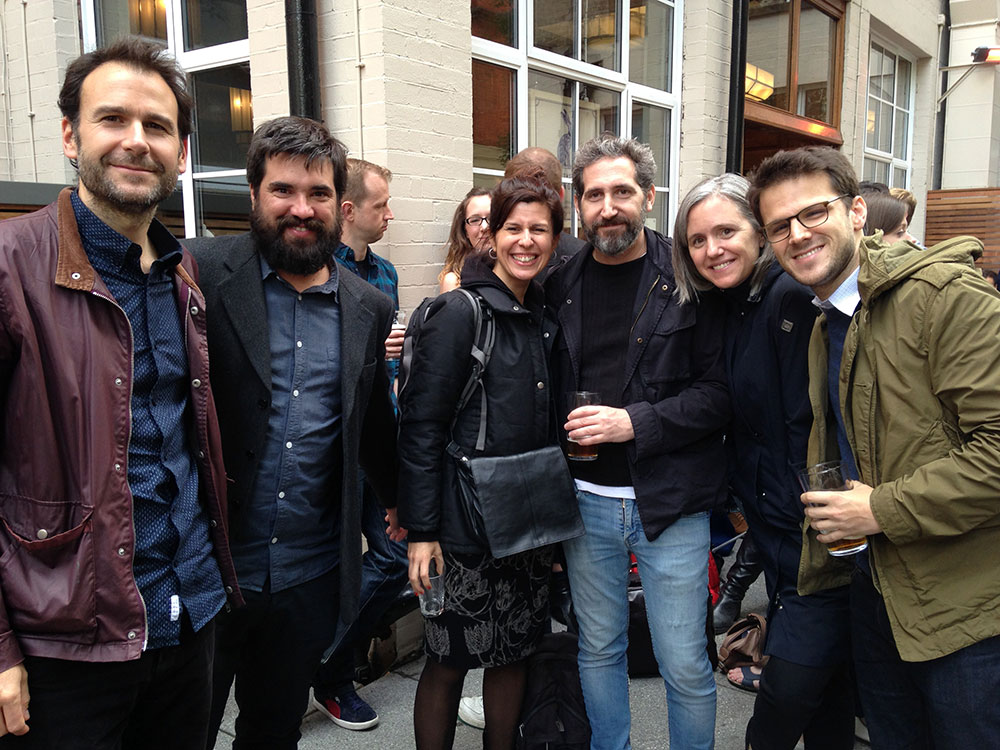
The centrality of lateral economic objects: examples from Latin America
This is a really interesting workshop. This post originally appears at easst.net.
The centrality of lateral economic objects: examples from Latin America
Tomás Undurraga, Tomás Arista, Gustavo OntoOn July 1st, 2016 the workshop ‘Social Studies of the Economy in Latin America’ took place at the Science and Technology Studies Department, University College London. The meeting convened a number of scholars who work at the intersection of social studies of the economy, STS, sociology and the anthropology of economic knowledge. The workshop focused on leading research that offers a close-up examination of economic life. In particular, it engaged ethnographic and historical perspectives on the multiple ways in which the economy, culture and technology intersect, and on the way in which economic subjects and objects are constituted and performed.
The kinds of research objects discussed in the workshop go beyond the usual economic entities and processes often examined by Latin American scholars in the social studies of the economy, such as markets, competition, money, economists and finance. Instead, most of the participants investigate assemblages of lateral epistemic objects which play a critical but relatively humble role in the orchestration of the economy, e.g. indexes, databases, economic news and regulatory figures. The research presented aimed to show how the production of different types of knowledge relates to the constitution, contestation and regulation of economic forms and processes, which are considered to be more central in public debate – e.g. inflation, competition, economic prospects and customers. Broadly speaking, three kinds of epistemic objects were discussed: public numbers, private numbers and economic news.
Economic News
Mariana Heredia and Claudia Daniel take a long-term historical view of the way inflation is publically framed and understood in contemporary Argentina. Analysing the way price increases were discussed in the news of the two major newspapers (La Nación and Clarín) between the 1940s and 1990s, they distinguish two clear periods. From the 1940’s to the 1970s, inflation was presented as a social and political phenomenon, in which social leaders representing workers and branch industries played key roles in disputing state involvement in price control. These national newspapers took clear ideological standpoints on inflation, standpoints reflecting different conceptions of the economy. While La Nación represented a liberal vision, Clarín promulgated a more interventionist approach. Notably, inflation during this period was an important problem for liberals, and particularly so during unstable years. Since the mid-1970s, however, inflation has not only continued at three digit levels, they argue, but its framing has also changed. As experts in economics were increasingly called to give their professional advice and opinion, ideological cleavages began to fade. Inflation came to be considered an urgent ‘economic’ problem shorn of clear ideological baggage, a problem involving all members of society equally, without regard to political orientation, a problem requiring the in-depth intervention of independent economic experts. The story they tell shows how inflation moved from being a general social and political problem to a technical, ‘economic’ subject fit only for experts.
In a similar vein, Tomás Undurraga investigates the assemblage of economic news by Brazilian journalists. Based on a multi-site ethnography of two influential newspapers in Brazil, he examines how the production of economic news involves journalists in mediating knowledge claims made by experts, policy makers and the lay public. Undurraga asks whether and how Brazilian journalists experience themselves as knowledge-makers. The paper describes how journalists aim to produce news that is marked by four main features: depth, authorship, influence and expertise. In doing this, this paper shows that journalists are more likely to consider newsmaking a contribution to knowledge when: they have the resources to do proper investigative reporting (depth); they are able to help define the public agenda through their reporting and to express their opinion on events (authorship); they have impact on the field they cover (influence) and their journalistic knowledge is recognised as a form of expertise by readers and specialists (expertise). In practice, however, there are multiple obstacles that make Brazilian journalists hesitant about their contribution to knowledge, including, intensified working conditions alongside other challenges of media convergence, the lack of plurality within the mainstream presses, journalism’s low professional status in Brazil, and difficulty in dealing authoritatively with experts from other fields.
Public Numbers
Neiburg and Gross’ papers examined disputes concerning the production and circulation of public numbers and consumer price indexes through regulatory documents and policies. While public numbers play a key role in defining how the economy is shaped, such numbers are often constituted via historical knowledge practices through which specific versions of the economy are supported and others discarded.
Examining the way in which Argentina’s inflation dispute was framed, Federico Neiburg maps the genealogy and justifications of ‘economic emergencies’ as economic and legal objects. Exploring the state of “national statistical emergency” decreed by President Macri in December 2015, Neiburg discusses the juridical and political implications of intervening in the National Institute of Statistics. In this context, the paper maps a genealogy of devices and justifications for economic emergencies, which aim to suspend momentarily the rule of law and to encourage the normal, independent operation of markets. He shows how economic emergencies open a clear window onto the interconnections between everyday and academic categories relating to the ‘real economy’. Neiburg discusses how “emergency” regulations designed to govern the economy allow action to be taken in relation to knowledge of economic life, such as the production of indicators. These actions are generally justified in defence of the ‘common good,’ and directly affect the ‘real economy’ and ‘people’s real lives’: prices, wages, contracts, employment, debts, savings and so on. Similarly to Heredia and Daniel, Neiburg shows how the production of ‘emergency’ situations relates to the practical implementation of technical numbers such as indicators.
Ana Gross takes the controversy generated around the validity of the Consumer Price Index (CPI) in Argentina since 2006 as an empirical occasion to observe how public economic numbers are produced in an increasingly decentralized way. She explores two distinctive features of the controversy surrounding the proliferation of alternative inflation indicators: first, the public disaggregation of inflation databases that render the products and prices used to calculate CPI; thus transforming the way in which prices are visibilized; and second, the emergence of alternative inflation indicators based on different temporal modes of release and communication. The paper looks at how the observation, knowledge and experience of public economic numbers becomes re-organised when statistics are disaggregated to the point where they render the specificities of their calculations visible, and when official indicators like CPI become contested by other measures.
Private Numbers
We also examined objects such as databases and visualization techniques that help to shape and materialize economic subjects and states of affairs. These objects, such as antitrust policy charts and consumer databases, illustrate the mediating role that knowledge practices and devices play in shaping central economic objects and subjects – such as consumers, markets, and competition. These objects (Guyer, 2016) cannot be described as necessarily “economic”, since they are also used to enact things that are not necessarily considered economic. Further attention to these epistemic objects, however, expands the way we are prone to describe the economy.
Based on an ethnography of the Brazilian antitrust governmental agency – the Administrative Council for Economic Defense, CADE – Gustavo Onto explores the production and use of documents and graphic artefacts and the role they play in regulating market competition. Antitrust regulation involves a variety of administrative practices aimed at producing knowledge about specific markets, industries, companies and consumers, with the aim of facilitating decisions about, e.g., whether to authorise a merger between two companies, or to condemn anticompetitive practices like those of a cartel. These knowledge practices rely on the production and circulation of different bureaucratic artifacts that are critical for regulators to be able to visualize market competition, usually through tables, charts and percentages. Taking specific merger cases analyzed by regulators as examples, Onto argues that competition is not necessarily an abstract or theoretical notion when seen from the point of view of knowledge practices that frame the possibility of future harm to consumers and other companies. By contrast, he argues that competition can only be understood or visualized by regulators through specific material and graphic techniques that foreground a set of relations of similarity and difference between products, services and companies.
In a similar vein, Tomás Ariztía discusses how consumers are enacted in marketing datamining. Based on an experimental ethnography of the manufacture and analysis of a transactional dataset from a small retail company in Chile, Ariztía describes the practice of ‘number crunching’ – i.e. the process of creating, modifying and datamining transactional data during the production of consumer databases. In doing so, the paper describes the enactment of consumers in datamining as the outcome of a myriad of socio-material practices and devices through which specific accounts of the social world are rendered visible. The paper describes how the consumer that is enacted through datamining is the result of a practical operation of qualification deployed trough different digital infrastructures. In doing so, the paper explores two specific aspects of the production of consumer datasets: first, the central place of error as both a heuristic tool and an outcome of consumer data practices. Second, the paper explores how datamining for marketing purposes relies on multiple, humble valuation processes through which the data that “counts” is defined. These processes involve defining and mobilizing consumers in specific ways, while others are discarded.
Lateral Economic Objects
What do public and private numbers such as consumer price and inflation indexes, market share tables, consumer datasets and economic news have in common? On what grounds can these objects be labelled “economic”? How do they relate to the production of more well-known economic entities and processes, such as markets, prices or firms? In what follows we discuss some common threads among the papers. We do so by proposing two key arguments about the place that lateral epistemic objects occupy in the production of the economy.
First, the objects described are ‘lateral’ since they relate to processes such as indexing, prospecting scenarios and deploying an administrative procedure, which are not necessarily specific to processes of economization. At the same time, however, all these objects contribute to the assemblage of entities that go on to be considered central to economic life, such as consumers, prices, market competition and economic forecasts. This apparent tension points us to one of the core theoretical claims that is supported by a close reading of the work presented: namely, that the different epistemic objects that constitute the economic world do not necessarily relate to the processes of economization described by Çalışkan and Callon (2009; 2010). These objects instead participate in the production of the economy in a subtler, lateral manner. In other words, core economic entities rely on the mobilization of a plurality of non-economic processes and knowledges, which are key in shaping the economy, such as databases, news or excel tables. Core economic processes are therefore not as autonomous and sui generis as the work of Caliskan and Callon is often taken to suggest.
It is in this sense that we term the objects described in these papers as ‘lateral economic objects’. They take part in economization processes only in an indirect manner. They deal with practices and devices that constitute the economy in so far as they mediate further processes of economization, but they may play a similar role in processes that are not overtly economic. The relatively humble operation of, e.g., manufacturing indexes, regulatory documents, economic news, databases and market shares tables contribute to making the economy possible but are not themselves specific or exclusive to modes of economization. Eschewing the centre/periphery binary, ‘lateral objects’ illuminate other processes that are not necessarily less central to the economy but have received less attention in the making of the economy
The previous claim points us to a second, stronger one. As argued by Miyazaki and Riles (2005), not all the objects and practices that shape economic life need to be related in a direct fashion to processes of economization or marketization. Economic life is produced in ways which are not always convergent and that might involve the existence of different frictions in the production of the economy. In this sense, these papers dealing with the production of lateral economic objects illustrate how economic life is produced and assembled in different and divergent places, which are only partially related to one another. The contributors to the workshop thus attempt to develop an understanding of the economy that is open to the multiplicity and contestability of knowledges and materialities that shape economic life.
The focus on the laterality of the objects examined here raises a further question about the Latin American nature of our examples. How do these examples help us to understand the production of the economy in Latin American countries specifically? What do these various research projects focused on Argentina, Brazil and Chile tell us about the specificity of the economies of the region? Going beyond the traditional stereotypes with which the social sciences tend to label Latin America – e.g. as being a laboratory for economic experimentation, as being politically and economically hierarchical and a place of contestation and hoped for political change – these papers shed light on the socio-technical nature of the Latin American economies from an anthropological and sociological perspective. In this sense, the papers discussed here illuminate a second meaning of laterality, one that relates to the place that practices and devices have in the analysis of economic life in this region. In fact, contrary to a meta-narrative reading of Latin American political economy, these papers reveal the nuances and specificities of the economies in the area, and how these economies are locally constructed, governed and contested.
This workshop received funding from the European Research Council under the European Union’s Seventh Framework Programme (FP7/2007–2013)/ERC grant agreement No. 283754.
The organizers thank Tiago Mata, Asa Cusack and the members of the ‘Economics in the Public Sphere’ project for helping us put together the workshop
References
1 This workshop received funding from the European Research Council under the European Union’s Seventh Framework Programme (FP7/2007– 2013)/ERC grant agreement No. 283754. The organizers thank Tiago Mata, Asa Cusack and the members of the ‘Economics in the Public Sphere’ project for helping us with the workshop.
Çalışkan, K. & Callon, M. (2009) Economization, part 1: shifting attention from the economy towards processes of economization. Economy and Society, 38: 3, 369-398.
Çalışkan, K. & Callon, M. (2010) Economization, part 2: a research programme for the study of markets. Economy and Society, 39: 1, 1-32.
Guyer, J. (2016) Legacies, Logics, Logistics. Essays in the Anthropology of the Platform Economy. The University of Chicago Press.
Miyazaki, H. & Riles, A. (2005) “Failure as an endpoint”. In: A. Ong and S. J. Collier (eds.), Global assemblages. Oxford: Blackwell. pp. 320-331.
Author information
¿De ignorantes a indignados?: Carencias de educación financiera en el sistema previsional chileno
DEBATES Y COMBATES 15.10.2016
¿De ignorantes a indignados?: Carencias de educación financiera en el sistema previsional chileno
Un análisis de la controversia de las AFP y sus consecuencias en la socialización y educación financiera.
Share to FacebookShare to TwitterShare to Correo
Foto: Agencia Uno Foto: Agencia Uno
El debate observado las últimas semanas sobre el sistema de capitalización individual que Chile adoptó en los años ochenta, ha generado que diversos actores desplieguen sus juicios sobre el presente y futuro del sistema de previsión social. En ello, se pueden ver una tensión recurrente en concebir las pensiones desde la razón política: vista como el derecho social obtenido por el triunfo de las disputas distributivas; y una razón económica, enraizada en cómo un trabajador puede llegar a obtener una jubilación eficaz mediante el ahorro personal realizado.
La controversia puede ser resumida en dos caras; desde la ciudadanía se materializa un descontento generalizado, representado en la alta adhesión que han tenido las convocatorias al movimiento “NO+AFP” a lo largo de todo el país. Los actores reclaman la injusticia del sistema, ya que éste no refleja los años de esfuerzo laboral y los que no se condicen con los resultados obtenidos en su jubilación. Esta construcción política ha estado acompañada de estudios y difusión tanto de la Fundación SOL y economistas expertos en pensiones, tal como Manuel Riesco, que han denunciado públicamente el déficit en la entrega de pensiones. En cambio, los representantes de las Administradoras de Fondos de Pensiones (AFP) –abanderados por su actual presidente, Rodrigo Pérez Mackenna- argumentan que las AFP hacen una tarea eficiente en la distribución de las pensiones, desplazando los problemas y la explicación de los mismos a las características del mercado del trabajo nacional – como es la presencia de la informalidad económica, alta composición de trabajadores independientes y flexibilidad laboral-.
Desde el punto de vista del gobierno, esta disputa se puede resumir ligeramente hacia una resolución dicotómica. Por un lado, se busca una solución política, asimilada en qué el Estado vuelva a tener un papel principal en el sistema de previsión, mediante la creación de una AFP administrada por éste. Por otra parte, los defensores del actual modelo, plantean la generación de reformas que permitan a las AFP adaptarse a las exigencias del mercado laboral chileno, y de dicha manera, solucionar los problemas estructurales que presenta dicha industria, los que repercuten en el menor ahorro previsional que realizan las personas.
A pesar que la controversia muestra interesantes posiciones, el presente escenario plantea un camino distinto para la discusión del problema del sistema de pensiones. A la luz de los resultados de la reciente encuesta publicada por el Centro de Microdatos de la Universidad de Chile y en cooperación con la Asociación de Bancos e instituciones financieras (SNIF), se puede sostener que los chilenos se encuentran en un bajo porcentaje socializados en cuanto a conceptos y aplicaciones económico-financieras. Si comparamos dicha educación financiera con el contexto internacional, se observa que solo un 6,2% de los encuestados supo responder adecuadamente tres preguntas básicas relacionadas con inflación, interés compuesto y diversificación de riesgo. En cuanto a la descomposición de los datos, se revela que el porcentaje de mayor analfabetismo se encuentra en jóvenes y adultos mayores -tramos etarios en donde más se ha concentrado el área publicitaria de las Administradoras-. Las conclusiones del estudio son evidentes, se debe potenciar educar, en conceptos y aplicaciones económico-financieros a los chilenos, especialmente a los grupos menos informados que son los jóvenes y los adultos mayores.
Esta reciente caracterización entrega luces de una crítica al sistema de capitalización individual en cuanto a su propia noción oferta, o mejor dicho: su concepción institucional de afiliado, pues otros mecanismos de defensa ante de la crítica que utilizan las AFP, se da en la capacidad que posee el sistema de entregar diferenciadas herramientas para que el afiliado persiga un camino personalizado en la consecución de una mejor jubilación.
El camino de reformas ya instalado en el mejoramiento del sistema ha escuchado a las AFP. Se ha dotado al afiliado de mayor responsabilidad, ya sea por la reforma de los multi-fondos como también la instalación del mecanismo de Ahorro Previsional Voluntario.
La reforma de los multi-fondos el año 2002 generó una tipología de los fondos, asignándoles letras –desde la letra A hasta el E-, siendo A el fondo de más riesgo/mayor ganancia y el E el de menor riesgo/menor ganancia. Este cambio no solo permitió a las Administradoras poder reinvertir de manera diferenciada los fondos obtenidos mes a mes, sino que también dejó al afiliado como único responsable tanto en las pérdidas y ganancias de sus ahorros obligatorios.
El mismo año 2002, bajo el mismo argumento del bajo porcentaje de ahorro de los cotizantes, se realiza un segundo momento de transferencia de responsabilidad a los afiliados, inaugurando el mecanismo de Ahorro Previsional Voluntario (APV). EL APV tiene como objetivo ser una forma de maximización de los ahorros para trabajadores que ya se encuentren cotizando en alguna AFP y quieran incrementar su jubilación o retirarse anticipadamente del mercado laboral. En esta reforma, también participa el Estado desde el año 2009, generando incentivos económicos asociados a beneficios tributarios, para quienes opten por este mecanismo de ahorro.
El desarrollo de ambos mecanismos, tal como han sido expuestos, dan cuenta que el sistema de previsión social posiciona al individuo frente a una diversificada gama de herramientas en dónde puede potenciar sus ahorros para la previsión, sin embargo, junto con dichas reformas y los resultados de la encuesta de educación financiera, emerge una interrogante: ¿Cómo las AFP han sostenido un camino en donde se transfiere el riesgo al afiliado sin generar, ya sea de forma personal o en compañía con el Estado, mecanismos de educación financiera?
Para responder a la pregunta sobre el accionar de las AFP, se pueden seguir las pistas que nos ha dado el sociólogo e Ingeniero francés Michell Callon. Callon sostiene que las ciencias económicas, y los economistas, en su desarrollo contingente no solo han descrito la realidad social, sino que en cambio han intentado masificar sus principios de concepción de individuo, sintetizado en la difusión del concepto de homo economicus. Es decir, los expertos en AFP han producido la forma en que se entiende el sistema y en particular la forma en que el afiliado debería actuar. Esta concepción producida del individuo -afiliado- posee tres principios básicos, un agente de carácter maximizador y de carácter egoísta, mismo que con conocimiento completo de su entorno, toma decisiones que busquen generar más utilidades para su persona.
Analizando las reformas del sistema previsional y los argumentos de Callon, damos cuenta que las AFP han avanzado en dicho camino al menos en parte. Sin embargo, dicho desarrollo ha sido de la mano de la creencia de que los afiliados cuentan con la información de funcionamiento y herramientas del sistema para optar teóricamente por más y mejores pensiones. Luego de los resultados de la citada encuesta, es claro que los datos para el caso chileno cuestionan esta hipótesis y más bien muestran una carencia de socialización financiera. El afiliado ha sido producido de manera incompleta.
En cuanto a la mayor innovación del sistema, es decir, la política de multi-fondos, según los resultados publicados por Benito Umaña más su equipo y en base a información obtenida por la Encuesta de Protección Social (EPS) 2006-2009, indican que un 78% de los encuestados no sabe qué tipos de fondos existen y solo el 17% ha elegido cambiarse de fondo. Estos datos se condicen con la encuesta Adimark realizada el año 2015 sobre el sistema de pensiones, indicando que el 90,2% de las personas dice saber poco o nada sobre el sistema, un 58,8% no sabe cuál es la comisión cobra su AFP y el 45,3% desconoce el monto que posee para su jubilación. Todos estos datos nos muestran una socialización financiera débil para el afiliado del sistema de pensiones de Chile.
En cuanto al segundo mecanismo, el APV, si bien las AFP celebran el aumento del 9% de dichos ahorros el periodo 2014-2015, el mismo se traduce en incremento monetario de 123.647$ a 134.527$ promedio por afiliado. Sin embargo, solo el 27% de los chilenos utiliza este medio de ahorro, es decir, 7 de cada 10 chilenos no ahorra voluntariamente en una institución financiera.
La preocupación por parte de autoridad y de quienes participan de este sistema debería ser evidente: el sistema de capitalización individual ha avanzado sin considerar los mecanismos de educación que conlleven un efectivo aprendizaje económico-financiero. Este proceso sostiene una paradoja: ¿hasta qué punto se pueden responsabilizar a los afiliados de la consecución de mejores pensiones sin considerar estrategias de educación financiera?
Una respuesta de mercado a dicha problemática ha sido observada en un emprendimiento para el caso de intermediación de información financiera. Este es el caso de “Felices y Forrados”, empresa que materializa su trabajo, asesorando y socializando económico-financieramente a inquietos afiliados, luego de las negras consecuencias de las crisis financiera Sub-prime a los fondos de pensiones. No obstante, la novedad de dicho intermediario, y tal como es sostenido en los resultados preliminares del proyecto Fondo Nacional de Desarrollo Científico y Tecnológico (FONDECYT) de iniciación Nº 1140432, es la reciente transformación de Felices y Forrados en actor político. Es decir, este intermediario se ha pronunciado críticamente en una variada gama de temas económicos, políticos, y sobre todo a la crisis de que actualmente observamos en el sistema de previsión social, llegando al punto de proponer cambios que favorezcan la protección financiera del trabajador, reprochando a las AFP en su trato indiferente y vertical del afiliado.
Esta tendencia de “Felices y Forrados” más el accionar de los afiliados, dado el déficit de educación y socialización en economía y finanzas, pueden ser una parte fundamental de la explicación de las movilizaciones sociales, críticas publicadas en reportajes, columnas de opinión, y en general, en los medios de comunicación como televisión, radios, diarios impresos y medios digitales. Mientras las AFP apostaron hasta el día de hoy, en la construcción de un afiliado que observe sus pensiones desde la razón económica, obtuvieron una respuesta completamente contraria: un movimiento social-político que si bien no sabe precisamente cuál es la dirección que debe apuntar un sistema de pensiones alternativo, sostiene que el actual sistema se encuentra en una profunda crisis.
En ello, los argumentos presentados aquí son una contribución para generar nuevas distinciones que aporten al conocimiento y debate. Con nuevas diferenciaciones, se puede pensar un sistema de previsión social en conjunto como sociedad, más allá de los debates técnicos y particularmente económicos. Un pensamiento de carácter complejo, que considere la multiplicidad de observaciones sobre este problema, permitirá considerar las distintas facetas que median en la construcción de un sistema de pensiones y que refleje los desafíos de un Chile del siglo XXI.
Trabajos finales de Campo
El proyecto Fondecyt, entra en su etapa final.
Workshop Report: «Social Studies of the economy in Latin America-UCL»
Excellent Workshop: “Social Studies of the economy in Latin America-UCL”!
«What do these various research projects focused on Argentina, Brazil and Chile tell us about the political economy of the region? Going beyond the traditional stereotypes with which the social sciences tend to label the region – e.g. as being a laboratory for economic experimentation, as being hierarchical both politically and economically and a place of hope for contestation and political change – these papers shed light on the socio-technical nature of the economy from an economic-anthropology and economic-sociology perspective. Contrary to a meta-narrative reading of Latin American political economy, these papers showed the nuances and specificities of the economies in the region, and how these economies as objects, are locally constructed, performed and contested.»
On July 1st, 2016 the workshop ‘Social Studies of the Economy in Latin America’ took place at the Science and Technology Studies Department, University College London. The meeting convened a number of outstanding academics, including several contributors to this blog. Because the topics discussed are of central concern to this group, we are taking the opportunity to share some impressions.
The workshop aimed to discuss leading research that offers a close-up examination of economic life. In particular, it was oriented to ethnographic research that sheds light on the multiple ways in which the economy, culture and technology intersect, and in which the economy as an object is constituted and performed. Elaborating on previous research into the world of economic policy-making and expertise, the media’s role in public economic discussion, the nature of economic calculation and its material devices, and the variety of economic knowledges, the workshop focused on…
Ver la entrada original 1.435 palabras más
Académico de la Escuela de Comercio presenta proyecto Fondecyt en SASE 2016
Académico de la Escuela de Comercio presenta proyecto Fondecyt en SASE 2016
La exposición se realizó en el marco de la conferencia «Economías morales, morales económicas» de la Sociedad para el Avance de la Socioeconomía.
«Recomendaciones como dispositivo de performatividad moral: el caso de ‘Felices y Forrados’ y los fondos de pensiones chilenos» se tituló la ponencia del Dr. Juan Espinosa, académico de la Escuela de Comercio de la Pontificia Universidad Católica de Valparaíso, presentada en la conferencia «Economías morales, morales económicas» de la Sociedad para el Avance de la Socioeconomía (SASE por sus siglas en inglés), el pasado 25 de junio en la Universidad de Berkeley, California.
La exposición del académico de la PUCV se enmarcó en el proyecto Fondecyt de Iniciación Nº 1140432 «Relevancia de las masas en el mercado de capitales chileno», y dentro de un grupo en SASE, en el que se discutió y analizó los aspectos relacionados con la moralidad y la materialidad de variados tipos de mercados e industrias.
El argumento central de la presentación se basó en que el intermediario de información, es decir «Felices y Forrados», ha «inyectado» visiones morales en la industria de las Administradoras de Fondos de Pensiones (AFP), mismas que a pesar de ser una crítica al sistema, han permitido «justificar» su existencia.
«De esta manera, el fenómeno del comportamiento de masas que los economistas han comprobado para el mercado de capitales de Chile -y en particular respecto de la intermediación de información que realiza «Felices y Forrados»- se relacionaría con otros fenómenos sociales, como la utilización de la crítica del sistema de pensiones, que busca ejercer una suerte de «performatividad moral» sobre los usuarios del sistema de pensiones», explicó el Dr. Espinosa.
SASE se enmarca dentro de la metadisciplima de la Socioeconomía, que se basa en el supuesto de que la economía no es un sistema autocontenido, sino que se encuentra embebido en la sociedad, política y cultura. La Socioeconomía considera la competencia como un sistema encapsulado en un contexto social compuesto por valores, relaciones de poder y redes sociales.
Fundada en 1989, SASE es una organización internacional e interdisciplinaria que posee miembros en más de 50 países de los cinco continentes. Las disciplinas académicas que son representadas en SASE incluyen, economía, sociología, ciencia política, gestión, psicología, leyes, historia y filosofía. Además de académicos, también pertenecen a SASE miembros de la comunidad de negocios y diseñadores e implementadores de políticas públicas de diversos gobiernos e instituciones internacionales.
El resumen de la ponencia del Dr. Espinosa, se puede revisar en:https://sase.confex.com/sase/2016am/webprogram/Paper5442.html

El Dr. Espinosa exponiendo en SASE
EdlE en SASE 2016
La participación en SASE ha permitido que el proyecto Crowd Thought llegue a ser presentado en Berkeley. El link del paper aquí: https://sase.confex.com/sase/2016am/webprogram/Paper5442.html
Pronto publicaré un resumen de lo visto y conversado en California.
 Como ya es tradición (ver acá y acá), la conferencia anual de SASE, que este año se llevó a cabo en Berkeley, convocó a varias de las personas que normalmente contribuyen en Estudios de la Economía. En la foto, de izquierda a derecha, Magdalena Villarreal, Mariana Luzzi, Daniel Fridman, André Vereta-Nahoum y Juan Felipe Espinosa.
Como ya es tradición (ver acá y acá), la conferencia anual de SASE, que este año se llevó a cabo en Berkeley, convocó a varias de las personas que normalmente contribuyen en Estudios de la Economía. En la foto, de izquierda a derecha, Magdalena Villarreal, Mariana Luzzi, Daniel Fridman, André Vereta-Nahoum y Juan Felipe Espinosa.
Workshop: Social Studies of the Economy in Latin America, UCL July 1
Social Studies of Economy and Markets Workshop. A ‘close-up examination of economic life’.
[El 1 de Julio se llevará a cabo el workshop: “Social Studies of the Economy in Latin America” en UCL-Londres. Un excelente programa lleno de contribuidores de este blog]
In recent years there has been a renewed interest in research offering a close-up examination of economic life. In particular, ethnographic research has increasingly shed light on the multiple ways in which economy, culture and technology intersect, and in which the economy as an object is constituted and performed. Fertile inquiry has been conducted into the world of economic policy-making and expertise, the media’s role in the public economic discussion, the configuration of markets and economic subjects, the nature of economic calculation and its material devices, and the variety of economic knowledges, among other topics. This workshop will focus on the social studies of the economy in Latin America. It aspires to bring together a plurality of perspectives on the social…
Ver la entrada original 195 palabras más
Grayson Perry’s phallic sculpture: ‘It’s a big cock’
Artist Grayson Perry comments on his latest piece of work, a large phallus. Speaking in an excerpt from Channel 4’s Grayson Perry All Man documentary, Perry explains why he chose to create the sculpture and an accompanying etching. Perry says the work represents the bankers’ worldview
Docente de la Escuela de Comercio expone en Encuentro Europeo y Latinoamericano en Estudios Organizacionales
Su presentación se basó en los primeros resultados de su proyecto Fondecyt: «Financial Performance Rankings as Trading Organizing Devices: The Case of Chilean Pension Funds», el que busca mostrar la relación entre el ranking de las AFPs y el trading en mesas de dinero de banca, y de inversionistas institucionales, para lo que se utilizó un enfoque etnográfico y entrevistas en profundidad a actores relevantes del mercado de capitales chileno y de mercados financieros.
El link de la noticia de la PUCV aquí: http://goo.gl/Nzrbqx



